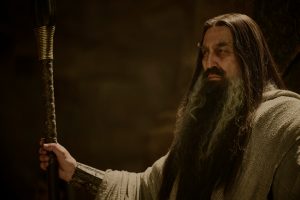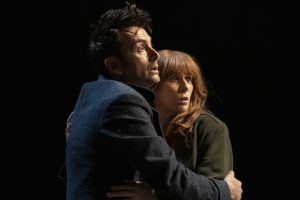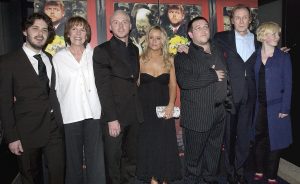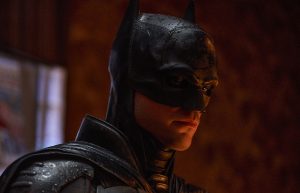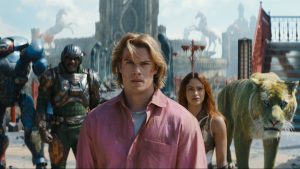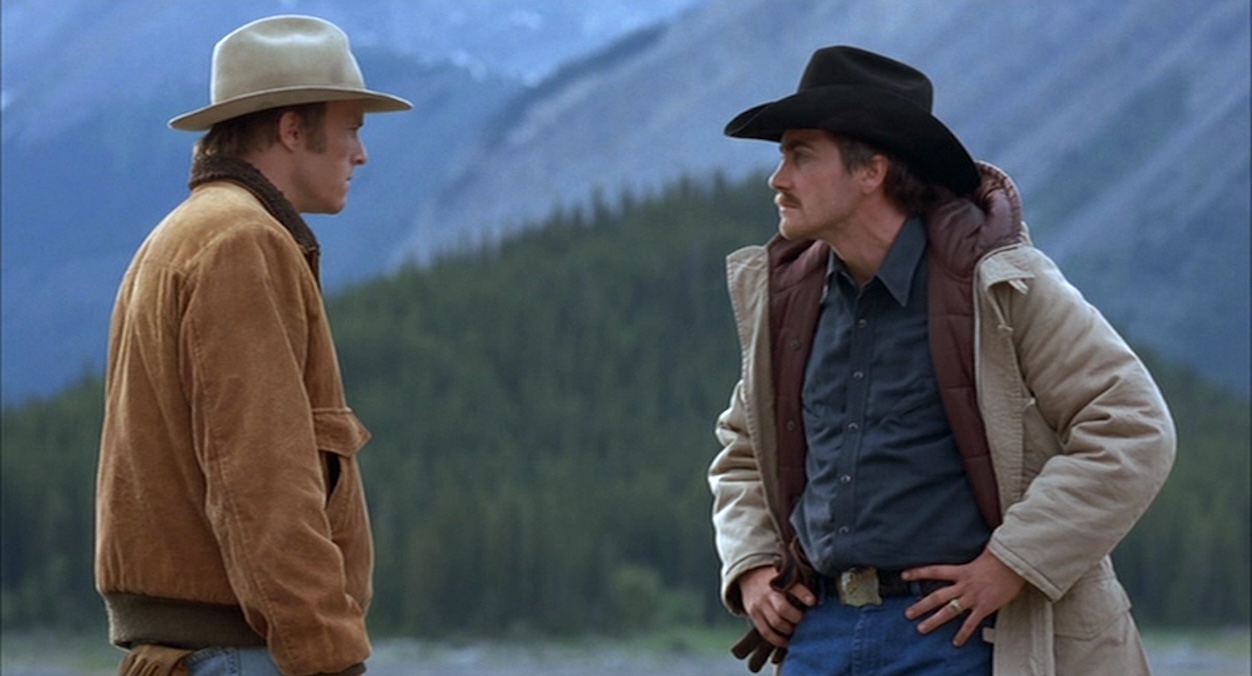
While there were a solid handful of vital LGBTQ+ moments and characters in entertainment media before 2000, the dawn of the 21st century represented a new shift in queer programming. Hollywood directors felt more inclined to depict sexual awakenings, people coming out, and even same-sex intimacy on the big and small screens.
There is a direct correlation between the number of people who identify as LGBTQ+ and the corresponding queer-friendly media moments that may have spearheaded or served as inspiration for real-life authenticity. A tear-jerking scene or a powerful line delivery possesses the power to transform the way a viewer thinks of themselves forever. These are the most iconic LGBTQ+ TV and movie moments of the 21st century, from prestige films to corny Disney Channel classics!
Mr. Pearlman Comforts Elio – Call Me By Your Name (2017)
When Call Me By Your Name was released almost a decade ago, moviegoers were enamored with Timothée Chalamet’s prodigious talent and Armie Hammer’s ability to complement the young superstar in a palpable romance. Since then, viewers have questioned the movie’s encouragement of age gaps in relationships and wondered whether queer films should feed into the stereotypes surrounding grooming within the community.
One scene that stands the test of time, though, and will for all of entertainment eternity is the moment that Elio’s father, played with impeccable intelligence and heart by Michael Stuhlbarg, comforts his son after the breakup with Oliver. Mr. Pearlman grapples with his son’s feelings while delicately dancing with his own heart, finding solace in the power of the love that Elio and Oliver shared. These five minutes help to illustrate how joy and pain are so interchangeable in the human experience, and that LGBTQ+ people deserve to let all of these emotions sing and cry.
Will Byers Confesses His Love to Mike Wheeler – Stranger Things (2016-present)
It might be hard to remember everything that happens in Stranger Things since the horror phenomenon only returns with new episodes every half-decade (or so it seems), but every TV viewer will know what you’re talking about if you mention the Will (Noah Schnapp) and Mike (Finn Wolfhard) car scene. Along with being one of the most meme-able moments in recent social media history, the emotionally strung monologue by Will served as the de facto coming out of the show’s most important protagonist.
Seen by millions of viewers worldwide, Will’s queerness should inspire a novel movement toward LGBTQ+ representation in ways that couldn’t happen before. Stranger Things transcends diversity qualifiers and minority subsects of the population. The sheer number of eyes on the series forces haters to accept gay people for who they are. If the Duffer Brothers conclude Will and Mike’s story wisely, it could blast open more doors for everyone to be authentically themselves.
Simon’s Mother Gives Her Blessing to Her Son – Love, Simon (2018)
Is Love, Simon corny, cookie-cutter, and one-dimensional? Sure. The first big teen queer rom-com to go to theaters didn’t really represent a large section of the LGBTQ+ audience, rather a privileged subsect of it, but it sure as hell nailed every big Hallmark movie moment it intended to.
The monologue given by Simon’s mother (a perfectly poignant Jennifer Garner) after his coming out—with her telling Simon (Nick Robinson) to exhale and be “more you than you’ve been in a long time”—wraps every gay kid and adult in a melancholy hug of pure love and acceptance. She speaks with reverence and genuine hope for Simon’s future, and it teleports most queer viewers to an alternate realm where being LGBTQ+ is just one part of their identity, and they are loved unconditionally.
Bill and Frank Share Strawberries – The Last of Us (2023-present)
The Last of Us television adaptation went by the book (or game) for the most part, adhering to the masterful video game storylines with superb acting by Pedro Pascal and Bella Ramsey. The best episode of the first season though is the biggest detour from the source material, and it couldn’t have gone any better.
Nick Offerman and Murray Bartlett get nearly every minute of screentime as a couple who have the privilege of experiencing queer love for the first time as the rest of the world crumbles. When the men share strawberries together in their garden, the eating of the forbidden fruit symbolizes the dawn of hope in a society with no more bigoted social rules (even if there are runners and clickers waiting at their doorstep).
“I Wish I Knew How to Quit You” – Brokeback Mountain (2005)
Very few movies match the social impact and vitality of Brokeback Mountain during the 2000s. Set against a haunting, natural backdrop and utilizing the talents of Jake Gyllenhaal and Heath Ledger, Ang Lee’s romantic darling swept awards voters off their feet and ushered in a new era of LGBTQ storytelling.
The two cowboys at the center of the romance struggle to come to grips with their feelings for one another, specifically Ledger’s Ennis Del Mar. Gyllenhaal’s raw line delivery as Jack Twist culminates the couple’s relationship with melancholic and intimate torture. When you know someone feels the same way as you, but they don’t have the courage to show it, you just wish you had a way to walk away.
Prince Wilhelm Comes Out to Sweden – Young Royals (2021-2024)
Subtitles and the ocean sometimes get in the way of Americans watching incredible TV. Young Royals should be at the top of every list of foreign programs to binge for viewers who want to get comfortable with the other side of the pond. The story of a Swedish crown prince and his forbidden romance with a choir student at his school hits every correct chord for three seasons, but no moment stands out more than the final scene in season 2.
With pressure mounting for Prince Wilhelm (Edvin Ryding) to never see Simon (Omar Rudberg) again and continue to lie about a sex tape that was filmed of the two against their will, Wilhelm admits his identity in the video in a national address. The scene illuminates the power celebrities and politicians have to break down LGBTQ+ barriers while also bearing responsibilities other queer citizens never have to tackle.
Héloïse and Marianne Kiss For the First Time – Portrait of a Lady on Fire (2019)
Mixing historical drama with LGBTQ+ romance is a match made in queer heaven, especially in the case of Céline Sciamma’s Portrait of a Lady on Fire. Set in 18th-century France, the movie tells the intimate and subtly sensual story about a painter and her muse as they slowly gravitate toward one another.
The scene when Héloïse (Adèle Haenel) and Marianne (Noémie Merlant) share a kiss for the first time feels more delicate than most films. Merlant and Haenel understand the intricacies of the story and their characters in a way that contributes to a uniquely delicate and inspiring moment filled with Pride.
Ken Dance Battle – Barbie (2023)
Barbie redefined the summer blockbuster for a new generation in 2023. Everybody had an opinion about Greta Gerwig’s expression of feminism, toxic masculinity, and the struggle for both genders to see eye-to-eye.
The movie was also a big hit with gay men, even if there aren’t any tangibly LGBTQ+ scenes in the film. The dance battle with all of the Kens, led by Ryan Gosling’s already iconic performance, was littered with queer-coded moments though. Dozens of hot guys singing and dancing while holding hands? Sign us up!
Mr. Farouk and Mr. Ajayi Share a Bedroom – Heartstopper (2022-present)
From its pastel graphics to the uplifting messages hidden behind even the most serious storylines, Heartstopper is a cone of cotton candy for the queer soul. The G-rated take on coming-of-age as an LGBTQ youth in Great Britain sometimes receives internet backlash for supposedly sugar-coating the difficulty of finding same-sex love as a teenager, but the Netflix series understands not everyone’s journey is the same.
With a myriad of queer romances to look up to, the burgeoning one between teachers Mr. Farouk (Nima Telaghani) and Mr. Ajayi (Fisayo Akinade) during a season 2 school trip showed late bloomers watching from home that there is no reason to shame themselves for not finding love during your school years. It takes some people until their 20s, 30, or 40s to express queer pride to its fullest extent, and it’s just as beautiful!
Kevin and Black in the Diner – Moonlight (2016)
Moonlight is the most awarded LGBTQ-focused film in the history of the medium. Following the upbringing and early adulthood of a traumatized queer Black man, Barry Jenkins’ magnum opus fleshed out the multiple facets of a gay person of color better than almost anything previously seen before or since on the big screen.
The most tender, intimate moment in the story comes during adult Chiron’s (Trevante Rhodes) reunion at the diner with his past lover and confidant, Kevin (André Holland). When Barbara Lewis’ “Hello Stranger” starts playing in the background, Jenkins sets the scene for a quaint yet gigantic moment of passionate nostalgia in which each man needs few words to express what they used to mean to one another.
Cyrus Comes Out – Andi Mack (2017-2019)
It almost feels like Andi Mack wouldn’t be allowed to exist in 2024, at least not in the same way it did upon premiering in 2017. This Disney Channel original series had no problem addressing teenage issues such as abandonment and coming out, even if the uptight and intolerant parents at home took issue with such concepts.
When Cyrus (Joshua Rush) comes out to his friends, specifically Jonah (Asher Angel), Andi Mack opened up LGBTQ representation to a massive audience that needed it the most. Allowing kids to see gay characters from a young age breaks down barriers and moves the discussion around LGBTQ rights in a positive direction before hateful adults can censor these stories.
The post The Most Iconic LGBTQ+ Movie and TV Moments of the 21st Century appeared first on Den of Geek.
